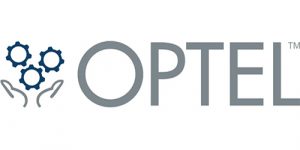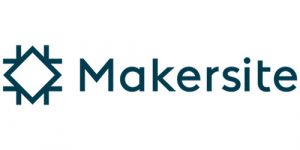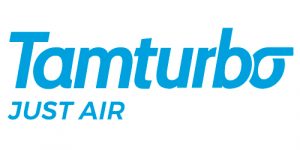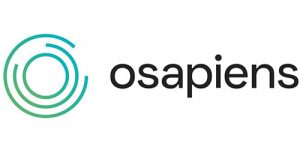Agenda
DAY 1 - 13th May

08:00 – 08:40
REGISTRATION
08:55 – 09:00
CHAIRPERSON’S OPENING REMARKS
09:00 - 09:30
ReFuel Danone’s energy excellence efficiency and decarbonisation program
- Targets: Improve energy efficiency by 30% by 2025, transition to 100% renewable electricity, at least 50% total renewable energy and -47.2% Scope 1 & 2 emissions by 2030
- How to reframe external challenges (energy crisis) to build an integrated, operational sustainability program
- The pillars of a program focused on energy efficiency and decarbonisation (renewable electricity & thermal)
- A cross-functional, localised, lean governance structure to deliver performance and sustainability
- Case studies from across globe: driving energy reductions and transition to renewable energy
Paul Kennedy , Zero Carbon Director, Danone

09:30 - 10:00
The Innovative New Approaches to Reducing Energy Usage, Designing for Circularity and How to Transition to Science Based Targets
- How to begin the transition to science-based targets including reviewing and setting a greenhouse gas target
- Energy Reduction strategy for industrial plants
- Case Studies
Maaike van t’Zand, Director Sustainable ISC & Sites Program, Philips

10:00 - 10:30
Emerging Trends: Navigating Sustainability into 2025
- This presentation aims to explore five critical topics within the realms of Energy Transition, Environmental, Social, and Governance (ESG) standards, and Product Sustainability
- These areas are poised to gain significant traction in 2025 and the years that follow, offering profound insights that you can integrate into your strategic planning
- DEKRA, the world’s largest independent and unlisted testing, inspection, certification and expert organization, offers its unique perspective on these pivotal sustainability issues
Sebastian Bartels, SVP Head of Corporate Focus Area Sustainability Services, DEKRA

10:35 - 11:25
COFFEE BREAK

11:30 - 12:00
Advancing Sustainability through Enhanced Traceability
- Recognizing the efficiency of managing diverse regulatory requirements, such as environmental (EUDR), food safety (FSMA), and sustainability reporting (CSRD), through integrated solutions
- Discussing compliance strategies and how traceability has emerged as a central element, encompassing the ability to track the origin (IRA), journey (SBTi), and transformation of products and raw materials
- How integrating these frameworks necessitates robust data management systems capable of handling complex data from various sources
- Ensuring transparency throughout the supply chain, from raw material sourcing to the finished product, is essential
Florent Bouguin, VP, Chief Technology Officer, OPTEL Group

12:00 - 12:30
Becoming an ESG Champion: How to stay course in turbulent waters?
- What are new developments and is the outlook for ESG in the current financial crisis?
- How can I measure my ESG maturity and progress compared to competitors and what is a recommended implementation roadmap?
- Deep dive: How is the EU battery pass impacting the product portfolio and regulatory requirements of my company?
Reinhard Geissbauer, Partner, Head of Europe for Digital Transformation & Sustainability, PwC
![]()
12:30 - 13:00
USING DATA TO ANALYSE AND EVOLVE YOUR CURRENT NET ZERO STRATEGIES
- Focusing the efforts on the bigger picture of balancing sustainability with efficiency, and utilizing partners to help manage processes that might seem alien
- Mapping an effective roadmap towards further decarbonization
- Drive forward your net zero initiatives identifying your strengths and blind spots with data analysis knowledge
- The power of data-driven insights to drive down carbon emissions

PLANNED INVESTMENT AREAS
- Energy Efficient Facilities
- Sustainable and Circular Materials
- Materials Procurement
- Compressed Air Innovations
- Climate Risk Assessment & Reporting
- PPA & VPPA
- Life Cycle Assessment
- Carbon Capture
- Data Governance
- Renewable Energy
- Energy Storage Solutions
- Carbon Offsetting Solutions
- Process Quality Control
- Environmental Commodities
- Environmental Management Solutions
- Water Management Software
- Plastic/Waste Recycling
- Resource Management Software
- Air Emissions Management
- Factory-as-a-Service
- Sustainability & ESG Software
- Machine & Deep Learning
- Enterprise Resource Planning (ERP)
- Material Requirements Planning (MRP)
- Circular Economy Strategies
- ESG Strategy Solutions
- Sustainable Materials Management (SMM)
13:05 - 13:55
LUNCH

14:00 - 14:30
Sustainability improvement with no investment
- Ambitious sustainability targets are difficult to reach without extensive investments into new energy-efficient equipment. Many companies struggle to make enough CVAPEX available to modernize manufacturing facilities
- One way to share the load and risk with vendors is through Product-as-a-Service models
- Compressed air is one of the easiest places to start saving energy (electricity and gas)
- Tamturbo offers zero CAPEX Touch-Free Air as a way to share the risk and savings
Olli Kuismanen, Responsible for Air-as-a-Service Business, Tamturbo Plc
14:30 – 15:00
Sustainovate - sustainable innovation for improved resource efficiency and decarbonization
- About us, heritage & purpose
- Sustainovate, how we address sustainability
- Carbon: Decarboniztion, opportunities and challenges
- Circular: Circular Innovation
- People: Transformation and inspiring for change
Adam Björk, Sustainability Director, Husqvarna Construction Equipment![]()
15:00 – 15:30
Journey to an interdependent sustainability culture
- Advancing Sustainability: Philip Morris’ Approach and Key Achievements
- Operationalizing Sustainability: Insights into Manufacturing Programs and Initiatives
- Defining a Culture of Sustainability to Support Achievements
- Practical Tools and Practices for Fostering Interdependent Culture
Stephanie Thery, Head of Sustainability Global Manufacturing, Philip Morris International

15:35 - 16:25
COFFEE BREAK

16:30 - 17:00
Navigating the Evolution of Sustainability Reporting and Compliance: Trends, Standards, and Regulations
- Keep abreast on the recent updates in international sustainability standards that might impact your sustainability strategy
- Understand the significant developments related to mandatory requirements in sustainability reporting, with a particular emphasis on the Corporate Sustainability Reporting Directive (CSRD)
- Get an overview of the latest trends in jurisdiction-specific sustainability regulations and implications for global business
- Understand the main developments in regulations applicable to environmental, social, and governance and the risks they pose to your company
Marina Dorileo, Content Innovation Lead, Enhesa

17:00 - 17:30
VISUALISE THE PRODUCTION LINES AND OPTIMISE THE INDUSTRIAL PROCESS WITH IoT, AI, AND MACHINE LEARNING
- Ensure steady profitability and market competitiveness with industrial process optimisation
- Increase production visibility to reveal gaps in the processes and focus on solutions that increase the sustainability of manufacturing
- Visualise your production lines, identify anomalies, and improve sustainability with the help of digital twins

PLANNED INVESTMENT AREAS
- Energy Efficient Facilities
- Sustainable and Circular Materials
- Materials Procurement
- Compressed Air Innovations
- Climate Risk Assessment & Reporting
- PPA & VPPA
- Life Cycle Assessment
- Carbon Capture
- Data Governance
- Renewable Energy
- Energy Storage Solutions
- Carbon Offsetting Solutions
- Process Quality Control
- Environmental Commodities
- Environmental Management Solutions
- Water Management Software
- Plastic/Waste Recycling
- Resource Management Software
- Air Emissions Management
- Factory-as-a-Service
- Sustainability & ESG Software
- Machine & Deep Learning
- Enterprise Resource Planning (ERP)
- Material Requirements Planning (MRP)
- Circular Economy Strategies
- ESG Strategy Solutions
- Sustainable Materials Management (SMM)
17:30 - 18:00
Identifying Your Manufacturing Organization’s ESG Goals and Beginning Your ESG Journey
- Uncover the steps you need to take to begin your ESG journey and ultimately establish an ESG function in manufacturing organizations
- Communicating the meaning and value of ESG to stakeholders and leadership to secure the buy in necessary to get the budget and resources allocated to make genuine changes and strides in ESG with reduced risk of it being deprioritized
- Our journey to establish an ESG function including identifying its ESG goals
Jelena Stamenkovski, Group Process Expert- Plants of Tommorow – Decarbonisation, Holcim
![]()
18:00 - 18:30
Exploring Cross-Functional Initiatives in Embracing Sustainability / ESG R&Os
- Starting with the organization why to engage stakeholders and promote culture change in manufacturing organizations to embrace sustainability
- Recognizing importance of ESG and its growing relevance in the global automotive ecosystem
- Exploring ESG cross-functional initiatives to embrace enterprise challenges and opportunities in global operations
ZF Group

18:30 – 19:30
DRINKS RECEPTION

DAY 2 – 14th May
08:55 – 09:00
CHAIRPERSON’S OPENING REMARKS
09:00 – 09:30
Essity sustainability strategy – how to accelerate the journey through innovations
- Essity sustainability strategy and roadmap for Consumer Tissue Category
- Infusing sustainability in everything we through new product innovations
- Finding the key to unlock “affordable sustainability”
- Talking to our consumers and customers about meaningful sustainability
- Examples of successful sustainable innovations
Valeria Salvadori, Global Innovation and Sustainability Director, Essity
![]()
09:30 – 10:00
OPEN LOOPS TO ENABLE SUSTAINABLE RECYCLED CONTENT
- Unpack consumer perceptions on sustainability
- Infinitely recyclable metal packaging takes recycling to the next level
- Boosting end of life recycling to keep materials in perpetual loops of use
- Sustainability as a joint supplier chain effort
Jenny Wassenaar, Chief Sustainability Office, Trivium Packaging ![]()
10:00 - 10:30
Achieving and Communicating Results in ESG and Climate Change
- Global organizations are obligated to communicate their challenges and progress regarding climate change and sustainability to stakeholders not only this year but until 2050
- Some of the most challenging issues organizations encounter include
– addressing scope 3 emissions,
– systematically determining material aspects,
– utilizing tools to define and achieve climate neutrality.
Olga Rivas, Technical Cluster Manager ESG, LRQA![]()
10:35 - 11:25
COFFEE BREAK

11:30 – 12:00
Leveraging your supply chain to boost sustainability
- Supply chain as key lever for sustainability
- Navigating and fulfilling key supply chain due diligence requirements (CSDDD, LkSG, VSoTr, NTA, etc.)
- Achieving climate objectives through tech-driven supply chain decarbonization
- Reporting according to recognized sustainability standards like CBAM, CSRD/ESRS and GRI
Hortense Grouvel, ESG Expert, Integrity Next GmbH

12:00 – 12:30
TRUSTWORTHINESS FOR SUSTAINABLE VALUE CHAINS
- Trust is key in cross-company communication. But what exactly de nes “trustworthy” information?
- “Chain of Trust”: Why modern supply chains require decentralized trust
- Digitalization as an enabler for the exchange of trustworthy information, on sustainability and beyond
- Examples and use-cases of Chains of Trust

12:30 – 13:00
Technology solutions for Sustainability Challenges. Emerging technology to aid the ever-growing Sustainability and ESG Challenges
- How can AI help?
- What support is available to address climate risk?
- How can technology be used to go beyond compliance and drive business value?
Peter Walsh, Senior Director, Sustainability & ESG Digital Solutions, Benchmark Gensuite

PLANNED INVESTMENT AREAS
- Energy Efficient Facilities
- Sustainable and Circular Materials
- Materials Procurement
- Compressed Air Innovations
- Climate Risk Assessment & Reporting
- PPA & VPPA
- Life Cycle Assessment
- Carbon Capture
- Data Governance
- Renewable Energy
- Energy Storage Solutions
- Carbon Offsetting Solutions
- Process Quality Control
- Environmental Commodities
- Environmental Management Solutions
- Water Management Software
- Plastic/Waste Recycling
- Resource Management Software
- Air Emissions Management
- Factory-as-a-Service
- Sustainability & ESG Software
- Machine & Deep Learning
- Enterprise Resource Planning (ERP)
- Material Requirements Planning (MRP)
- Circular Economy Strategies
- ESG Strategy Solutions
- Sustainable Materials Management (SMM)
13:05 - 13:55
LUNCH

14:00 – 14:30
Environmental management at AkzoNobel: Carbon and more
- AkzoNobel & its sustainability strategy
- Scope 1&2 reduction: strategy, programs, challenges and results
- Waste management: CSRD and challenges
Christian Eschauzier, Director Environment, Akzo Nobel

14:30 - 15:00
Sustainability @ Bayer: What you can‘t measure, you can‘t manage
- About Bayer
- Sustainability Strategy @ Bayer
- Targets & Progress of KPIs
- What’s working. Where do we have Challenges
Daniela Kölsch, Sustainability Performance Measurement, Bayer AG

15:00 - 15:30
HOW TO ACCELERATE YOUR INNOVATION, TECHNOLOGY SCOUTING AND SOURCING WITH AI
- Learn how to quickly source new technologies and start-ups
- Understand entire industries and technology clusters
- See how to commercially validate your patents
- Add SDG targets to your filters
